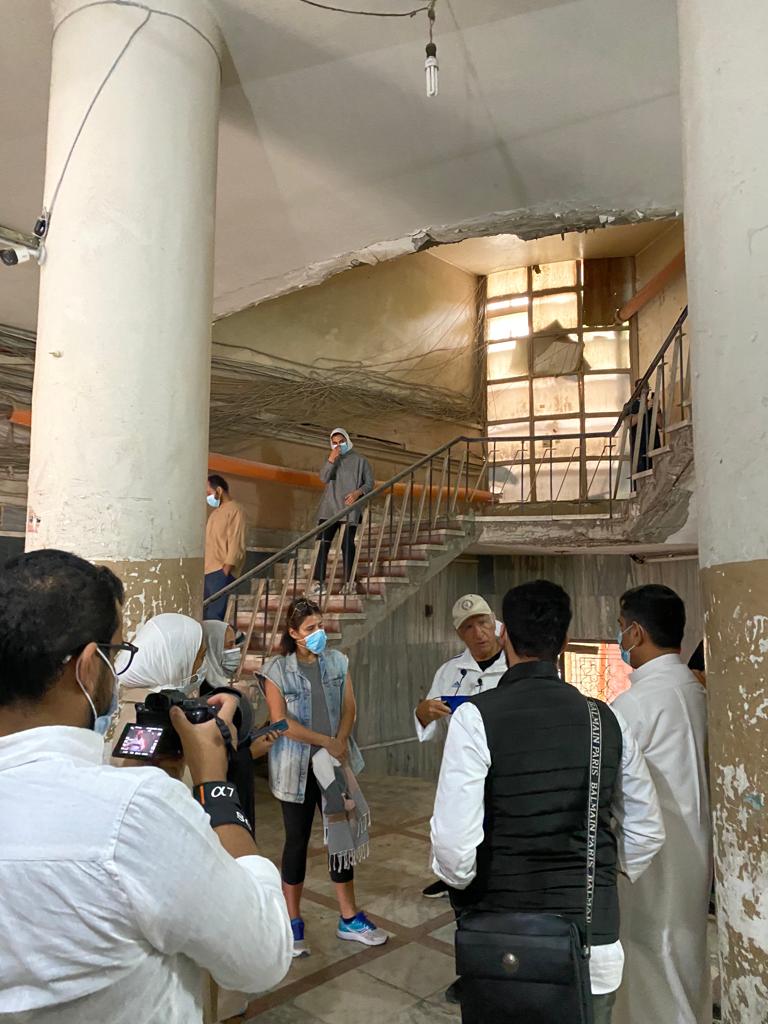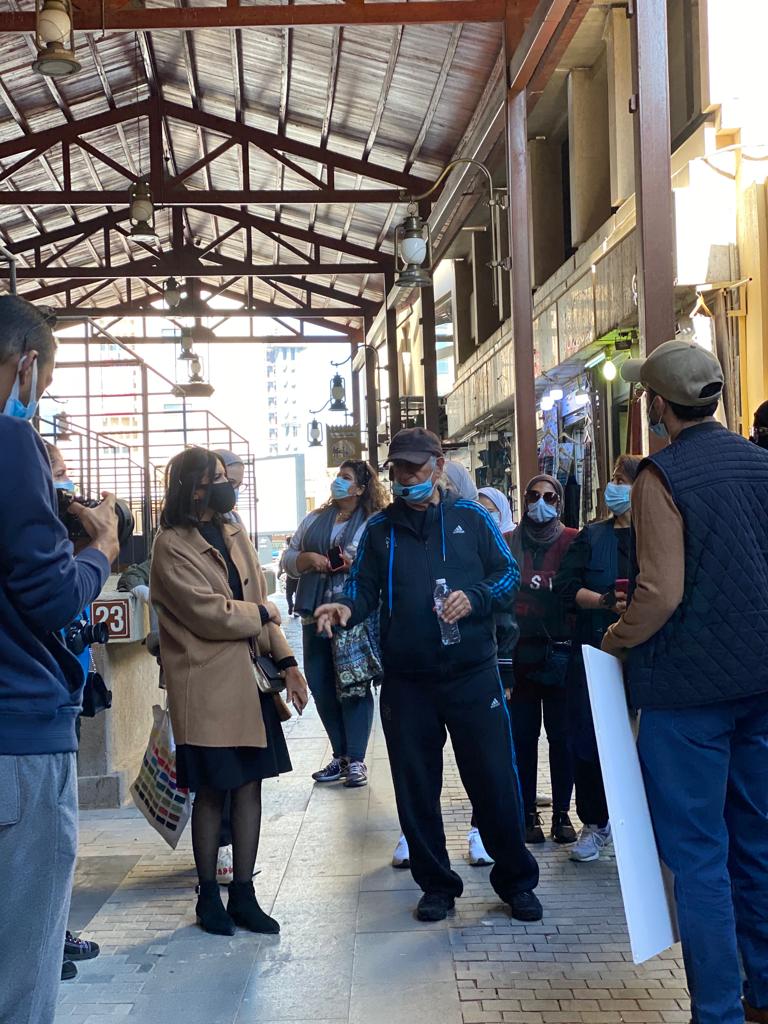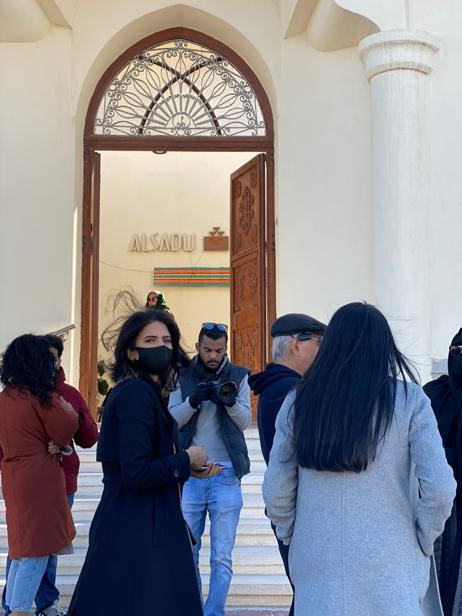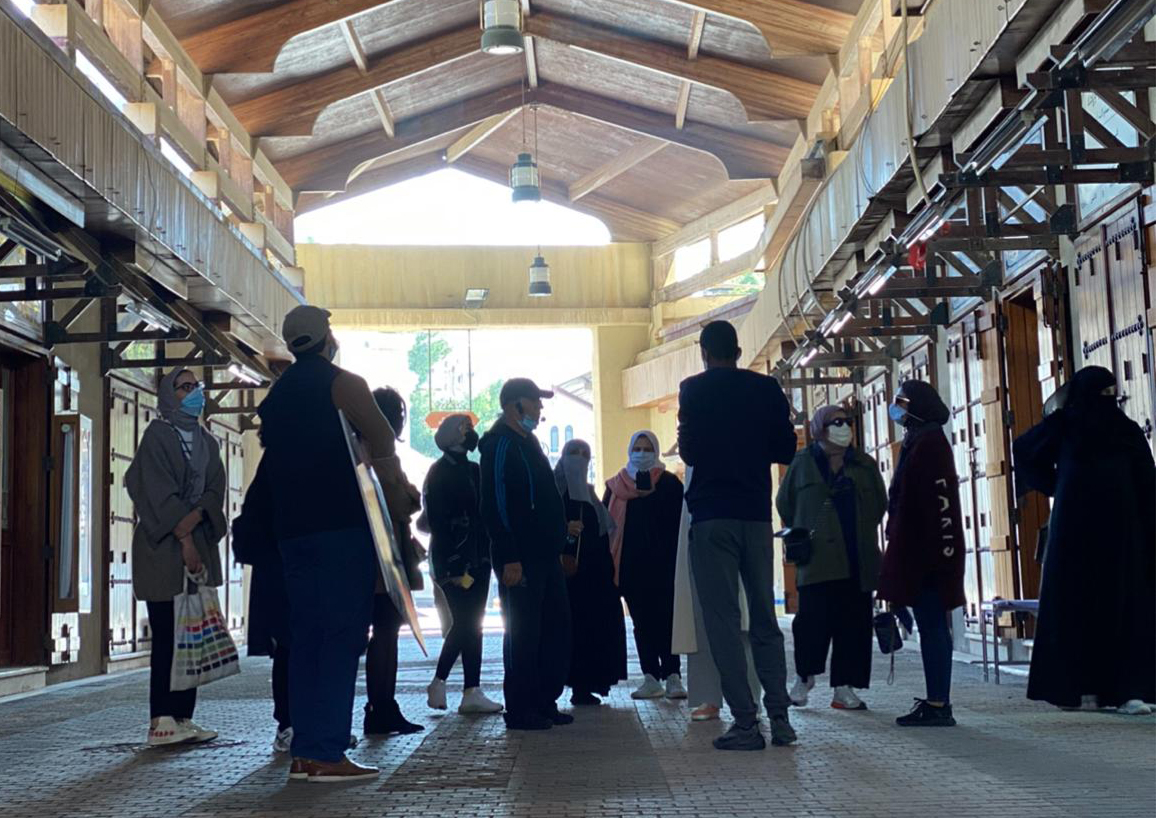By Faten Omar
KUWAIT: Documentation brings history to life and gives laypeople a deeper understanding of it. Historical documents enable the world to get as close as possible to the past to be able to see the roots of their societies.
Kuwait Times spoke with Dalal Al-Dayel, Founder of Tura initiative, to relive the history documented by her team. Dayel and her team have collected hundreds of documents, interviewed personalities that made Kuwait what it is today. They also organize tours of historical buildings, and create a living archive to tell the story of the past.
Kuwait Times: What is Tura?
Dalal Al-Dayel: Tura is an initiative that aims to preserve the oral history of Kuwait and build a spatial memory for the humanization of the settlement. Oral history is a method of conducting historical research through recorded interviews to add to the historical record. Oral history tells the story of people and their narratives of personal and national history. It is more related to the human aspect. By humanizing history, the streets and buildings will not be mere objects, but stories and tales people interact with, and the relationship becomes reciprocal between the individual and the place.
KT: When did the initiative start? Why did you start it?
Dayel: The initiative started three years ago. I love to read a lot and found that there is a lack of information about what happened in the fifties. I once read the phrase "Who guards the guards?!" and wondered who preserved the memories of those who lived in the past. Years ago, there were great efforts to protect oral heritage, but the documenter who preserved the memory of those who preceded them did not document their memory, so we have a kind of so-called interruption of time.
I was walking in the city and I had a lot of questions about the buildings and surroundings. I was trying to link information in books with the actual place in real life. This thirst for knowledge turned into an initiative. In the beginning, I worked alone with a lot of support from family and friends, but this year the transformation was great, as I founded my first team (Muneera Al-Ghanim, Afnan Al-Othman, Bedour Al-Mashan, Hessa Al-Muzaini, Abeer Al-Mohammad, Noura Al-Zaid and Faisal Althahab).
KT: Who inspired you to establish this initiative?
Dayel: I asked once for an appointment to meet Abdulaziz Al-Mufarrej. He spoke for hours, telling me great stories. At that time, Dr Yousef Al-Sari asked me if I had recorded this meeting, and I said no! He replied: I am a friend of his for 20 years and this is the first time I heard such stories. Here I realized that memorizing these stories is essential.
KT: What are the most important achievements of Tura initiative?
Dayel: Humanizing many sites and linking generations to each other, while making heritage an easy and palatable material to be loved.
KT: Do you have the needed experience in the field of historical documentation?
Dayel: Oral history documentation is a great field, and it was a great challenge for us to establish an individual initiative on practical foundations. Before I started the initiative, I tried to teach myself documentation tools to be an expert and do it properly. I asked a lot and read more, and I am still reviewing my methods and consulting experts.
KT: Tell us more about the tours and seminars organized by the initiative.
Dayel: We organized a lot of tours to explore the city. Our work is divided between documentation, tours and meetings that are highly demanded by people, aimed at honoring some of the pioneers.
KT: Who is the most important figure you have met and who left an impression?
Dayel: Every interview is a special experience - there is no ordinary interview. It is kind of diving into the memory and soul. I once read a comment by Al-Shamlan, saying, "I am filled with history." This is true - after I started documentation, I have felt the weight and impact the experience has left on my soul. You live the experiences of others intensely at once.
KT: How do you choose the people to be interviewed?
Dayel: Each person has a special story. Sometimes there are names associated with our memory, so we search for them. Sometimes many of our guests suggest some names to us, as well as followers who are always having opinions and demands.
KT: Will historical documents be publicly available?
Dayel: My first goal is to have an online encyclopedia for our stories and documented memories. Until then, I will post on Instagram and YouTube, and soon we will have several published books and documentaries.
KT: What are the most important events or information documented by Tura initiative?
Dayel: Our documentation of Shuwaikh High School. The material took three years to be documented, and we are still collecting the first database of its kind.
KT: What are the most important historical monuments documented?
Dayel: History of Al-Soor, old Kuwait City, Shuwaikh High School, Mirqab, Jahra and Fahaheel.



KT: What is the mechanism used in documentation?
Dayel: Our work mechanism depends on filming interviews with the guest, then editing and publishing them on social media platforms, in addition to arranging a general meeting for the public to link them to the experience of our guest directly, and save this experience to be available to the public.
After that, we translate the knowledge and experience inherited between generations into projects on the ground. We did our part in researching and striving according to scientific frameworks to build the oral library, and we succeeded in building a social network that qualifies us to communicate with all components of society to listen to their stories.















